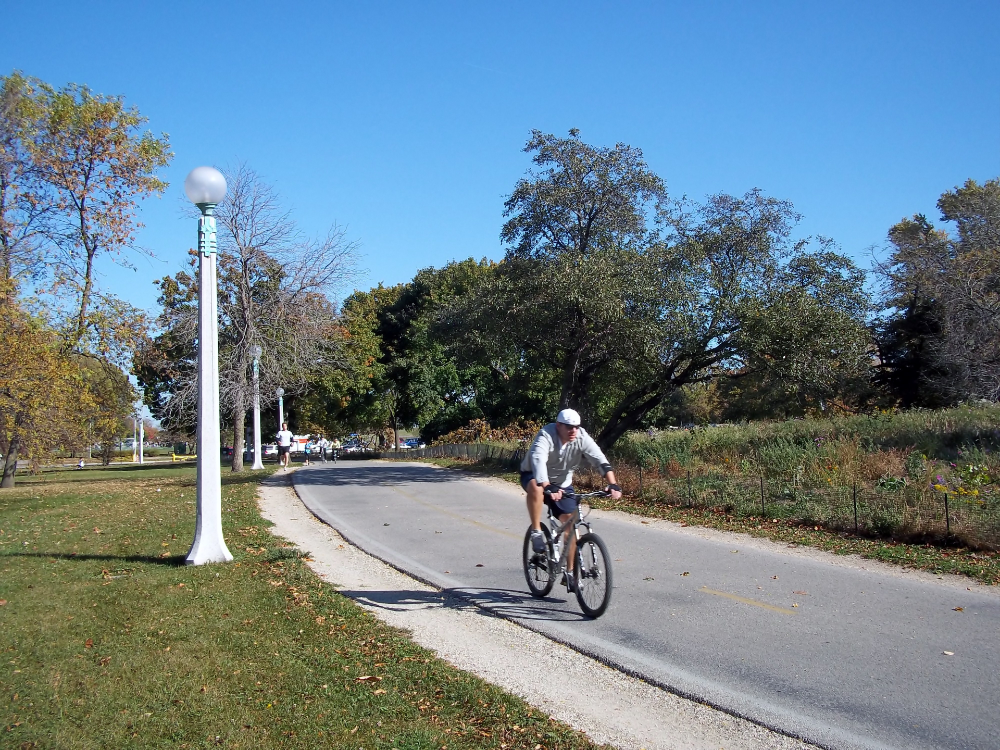BUFFALO GROVE – To help kids build important literacy skills and make reading a lifelong habit, State Senator Adriane Johnson (D-Buffalo Grove) is launching a summer reading club for children and young adults in the Lake County area.
 “Books have the power to transport kids to a new and exciting world, and to help keep their minds active during summer break,” Johnson said. “The benefits of reading follow young learners for years.”
“Books have the power to transport kids to a new and exciting world, and to help keep their minds active during summer break,” Johnson said. “The benefits of reading follow young learners for years.”
To join Johnson’s summer book club, students must read eight books of their choice, record the names of the books and return the form to Johnson’s office by Aug. 2. Everyone who completes the program will receive prizes and be invited to attend a pizza party hosted by Senator Johnson.
“Staying engaged is an important step toward bridging the achievement gap and preparing kids for the next school year,” Johnson said. “This program aims to keep young students learning when they’re not in the classroom.”
To participate, download and print the form here. Parents can also call Johnson’s office at 847-672-6201 to request a form by mail.
Johnson urges interested residents to call her office with any additional questions.
BUFFALO GROVE – Lake County residents will be able to enjoy the outdoors more safely thanks to over $2.5 million in funding to improve local bike paths and sidewalks, State Senator Adriane Johnson (D-Buffalo Grove) announced.
 “Walking and biking are great ways to get outside, stay healthy and enjoy time with friends and family,” Johnson said. “These investments will ensure residents can continue to enjoy our beautiful natural spaces for years to come.”
“Walking and biking are great ways to get outside, stay healthy and enjoy time with friends and family,” Johnson said. “These investments will ensure residents can continue to enjoy our beautiful natural spaces for years to come.”
Residents of Lake County will see improvements to a number of area trails for pedestrians and bicyclists, including over $500,000 to advance the Route 60 Bicycle Path Connectivity Project and $2 million to complete Stage 4 of the Patriot Path, a 5.5-mile pedestrian and bicycle route along Route 137 between Libertyville and North Chicago.
These projects are part of the Illinois Transportation Enhancement Program, for which the Illinois Department of Transportation has selected 99 projects totaling $105.7 million. Projects receiving funding in this round of investments include biking and walking paths, trails, streetscape beautification, and other projects designed to encourage safe travel across the various modes of transportation at the local level.
“Our infrastructure plans must make travel safer not just for motorists, but walkers and cyclists too,” Johnson said. “I’m excited to see our community expand opportunities for greener transportation and recreation.”
 BUFFALO GROVE – To help Illinois renters and landlords take advantage of up to $25,000 or 15 months in assistance through the Illinois Rental Payment Program, State Senator Adriane Johnson (D-Buffalo Grove) is partnering with the Illinois Housing Development Authority to host an informational webinar via Facebook Live on June 10 at 6 p.m.
BUFFALO GROVE – To help Illinois renters and landlords take advantage of up to $25,000 or 15 months in assistance through the Illinois Rental Payment Program, State Senator Adriane Johnson (D-Buffalo Grove) is partnering with the Illinois Housing Development Authority to host an informational webinar via Facebook Live on June 10 at 6 p.m.
“The pandemic took a toll on working families, putting many Illinoisans at risk of homelessness or housing instability,” Johnson said. “This program could be a lifeline for the thousands of households that are still struggling.”
During the webinar, an official from the Illinois Housing Development Authority will provide a walkthrough of the application process, offer helpful tips and answer questions. The event will be streamed live on Johnson’s Facebook page at Facebook.com/SenAlJohnson.
The Illinois Rental Payment Program is an emergency rental assistance program designed to support households in Illinois that are unable to pay rent due to the COVID-19 pandemic. The grant can cover the past due rent from the previous 12 months and future rental assistance for the next three months, if deemed necessary, up to $25,000.
Landlords have until June 7 to initiate an application, and tenants will have until June 13 to complete their portion of the application. Alternatively, tenants can begin initiating applications June 28.
For more information and to apply for the Illinois Rental Payment Program, visit IHDA.org.
BUFFALO GROVE – Following the fatal shooting of 18-year-old Gurnee native Ladarrius M. Cowart at Bowen Park in Waukegan early Sunday morning, State Senator Adriane Johnson (D-Buffalo Grove) offered her condolences and urged anyone with information to come forward:
 “I am deeply saddened to hear of the unfortunate and tragic death of Ladarrius M. Cowart, a recent high school graduate with a promising future.
“I am deeply saddened to hear of the unfortunate and tragic death of Ladarrius M. Cowart, a recent high school graduate with a promising future.
“Ladarrius was simply in the wrong place at the wrong time, and he paid a terrible price. His story is a reminder of the importance of youth development and gun violence prevention programs to address the root cause of crime in our communities.
“If you have information that could help bring justice to Ladarrius’s family, I urge you to come forward immediately.”
Anyone with information on the shooting should call the Waukegan Police Department’s investigations division at (847) 360-9001.
Page 61 of 78